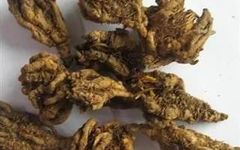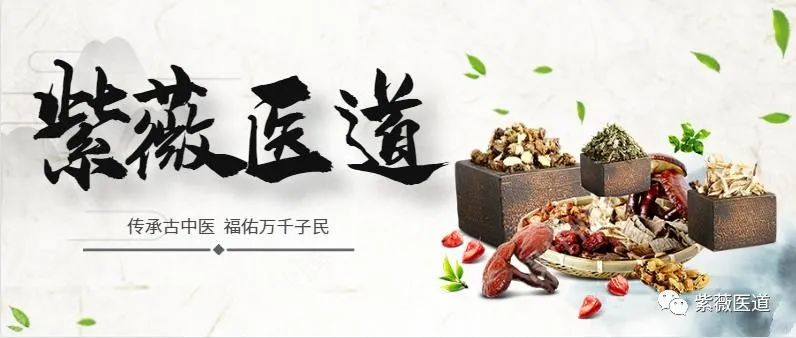
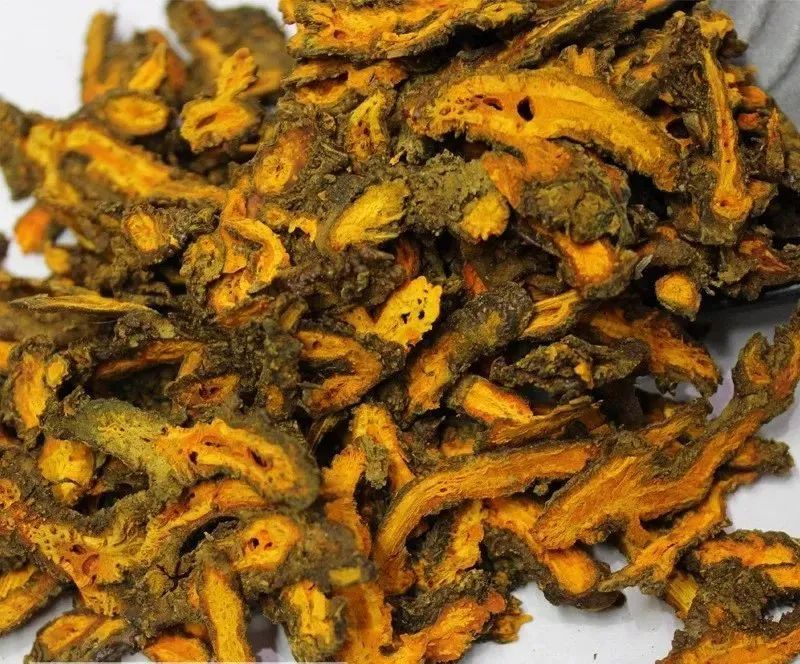
1
Huang Lian (Coptis Chinensis) is a key herb for treating eye diseases, dysentery, and vomiting. However, for eye diseases, it must be combined with herbs that dispel wind and invigorate blood; for dysentery, it should be paired with herbs that move qi and guide out turbidity; and for vomiting, it should be combined with herbs that calm and transform phlegm to achieve quick results. Relying solely on its bitter and cold properties cannot guarantee success.
2
For all types of sores, Huang Lian and Dang Gui (Angelica Sinensis) should be the main herbs, with Gan Cao (Licorice) and Huang Qin (Scutellaria Baicalensis) as assistants. For acute red and swollen eyes that are unbearably painful, Huang Lian and Dang Gui should be soaked in wine and decocted.
3
Huang Lian enters the heart and the membranes surrounding the heart, effectively clearing heat. It can also enter the liver, and like other guiding herbs, it can enter all meridians, but it is particularly effective in the heart.
4
Huang Lian can resolve the agitation caused by overdosing on medications and can counteract the toxicity of Ba Dou (Croton Tigris) and Qing Fen (Arsenic).
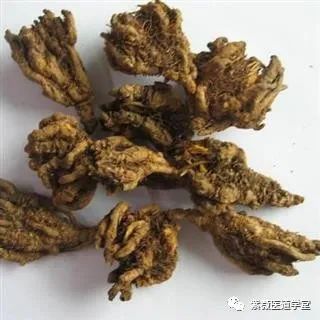
5
Most bitter and cold herbs tend to drain, but Huang Lian and Huang Bai (Phellodendron) are cold and dry, capable of lowering fire and eliminating dampness, thus stopping dysentery. Therefore, for treating dysentery, Huang Lian should be the main herb. Furthermore, any herb that can eliminate dampness will inevitably generate heat, and any herb that can clear heat will not be able to eliminate dampness. Only Huang Lian can use its bitterness to dry dampness and its coldness to clear heat, achieving both effects simultaneously, which is unparalleled.
6
Heart fire assists the liver, so Huang Lian should be the main herb. Moreover, all meridian-clearing fire herbs benefit from the addition of Chuan Lian (Coptis), which enhances their potency.
Huang Lian combined with Bai Shao (White Peony) clears spleen fire; with Shi Gao (Gypsum) clears stomach fire; with Long Dan Cao (Gentiana) clears liver and gallbladder fire; with Zhi Mu (Anemarrhena) clears kidney fire; with Huang Qin clears lung fire; with Mu Tong (Akebia) clears small intestine fire; with Huang Bai clears bladder fire; with Huai Mi (Sophora) clears large intestine fire; and with Shan Zhi Zi (Gardenia) clears San Jiao fire.
7
In ancient formulas for treating dysentery, Xiang Lian Wan uses Huang Lian and Mu Xiang (Saussurea); Jiang Lian San uses Gan Jiang (Dried Ginger) and Huang Lian; Bian Tong Wan uses Huang Lian and Zhi Yu (Cornus); Jiang Huang Wan uses Huang Lian and Sheng Jiang (Fresh Ginger);
For treating diabetes, Huang Lian should be steamed with wine; for heat stroke, it should be boiled with wine; for blood in the stool, use Huang Lian and garlic; for liver fire, use Huang Lian and Zhi Yu; for oral ulcers, use Huang Lian and Xi Xin (Asarum); all these combinations balance cold and heat, yin and yang, using cold for heat and heat for cold, with the monarch and minister herbs assisting each other, achieving the best formulation without the risk of bias.
8
The preparation of Huang Lian can involve pairing it with Da Huang (Rhubarb) or Shao Yao (Peony) for drainage, or with Ban Xia (Pinellia) and Gua Lou Shi (Trichosanthes) for dispersing, or with Gan Jiang and Fu Zi (Aconite) for warming, or with E Jiao (Donkey-hide Gelatin) and Ji Zi Huang (Egg Yolk) for moistening, or with Ren Shen (Ginseng) and Gan Cao for tonifying, depending on the condition, thus achieving the benefits of bitterness and dryness without the drawbacks of bitterness and dryness.
9
Huang Lian combined with Zhi Ke (Aurantii Fructus) treats blood hemorrhoids; with Tian Hua Fen (Trichosanthes Root) alleviates thirst; with Wu Wei Zi (Schisandra) and Gan Cao, decocted into a concentrated juice, is effective for oral ulcers; with Mai Men Dong (Ophiopogon) and Wu Wei Zi treats sudden thirst and frequent urination; with Ren Shen and Lian Zi (Lotus Seed) treats stagnation in the elderly and postpartum women.
10
Huang Lian and Gan Jiang used together, one spicy and one bitter, one dispersing and one descending, can open and drain regardless of cold or heat pathogens, making these two herbs the main herbs for treating fullness.
For food stagnation and fullness in the heart, Huang Lian and Zhi Shi should be used; Huang Lian combined with Ban Xia clears heat and descends rebellious qi.
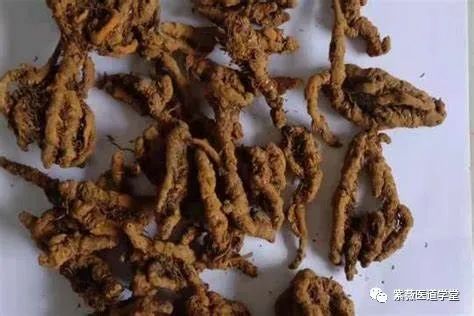
11
Huang Lian is used raw as the main herb, with a small amount of Rou Gui (Cinnamon) added, decocted until boiling, and taken with honey on an empty stomach, which can quickly harmonize the heart and kidney.
Some say that Huang Lian and Rou Gui have opposing properties of cold and heat, making them seemingly incompatible, yet there are successful cases of their combined use. This is because Huang Lian enters the heart, while Rou Gui enters the kidney. In daily life, the heart and kidney must communicate day and night for water and fire to achieve harmony; if water and fire are separated, the heart and kidney cannot communicate. If the heart does not communicate with the kidney, one cannot sleep at night; if the kidney does not communicate with the heart, one cannot sleep during the day.
When Huang Lian and Rou Gui are used together, the heart and kidney communicate instantly, so what is there to worry about regarding disturbed sleep?
12
Huang Lian has excellent calming, sedative, and tranquilizing effects, which are beneficial for insomnia, irritability, lack of concentration, and obsessive thoughts. In pattern differentiation prescriptions, adding 10 grams of Huang Lian can significantly enhance efficacy, eliminate lack of concentration, and improve memory, just as recorded in the “Shen Nong Ben Cao Jing”: “Long-term use prevents forgetfulness.”
13
Huang Lian has a good therapeutic effect on rapid heart rhythm disorders caused by excessive heart fire.
When paired with E Jiao, it treats insufficient heart blood; with Sheng Di (Rehmannia), it treats insufficient heart yin; with Mai Men Dong, it treats insufficient heart fluids; with Shi Hu (Dendrobium), it treats irregular heart rhythm; and with Suan Zao Ren (Sour Jujube Seed), it treats palpitations (rapid heart rhythm) and insomnia caused by disharmony between the heart and liver.
14
Huang Lian in small amounts acts as a bitter stomach tonic, which can stimulate the secretion of saliva and gastric juices, enhance gastric motility, promote gastrointestinal absorption, and increase appetite. However, excessive use can lead to bitter cold harming the stomach, resulting in digestive issues.
15
Huang Lian is a key herb for treating diarrhea due to its bitter cold and firming properties, clearing damp-heat.
Chronic diarrhea, despite showing signs of yang deficiency and cold dampness, still has many patients reporting that taking Huang Lian or adding it to formulas provides temporary relief.
This is because this herb has the dual functions of firming the intestines and stomach, antibacterial and anti-inflammatory properties, and drying dampness, which is why it is often used for chronic diarrhea.
For chronic diarrhea of the deficiency-cold type, while using Da Zao (Jujube), Gui Zhi (Cinnamon), Jiang (Ginger), and Cardamom, a small amount of Huang Lian can be added without concern for its coldness, but for its bitterness, using 3-6 grams in the formula, combining spicy, bitter, cold, and hot properties, can both drain dampness and firm the spleen, warm the kidney, which is especially suitable for cases of constipation with difficulty, a greasy yellow tongue coating, and mucus in the stool, or positive stool cultures.
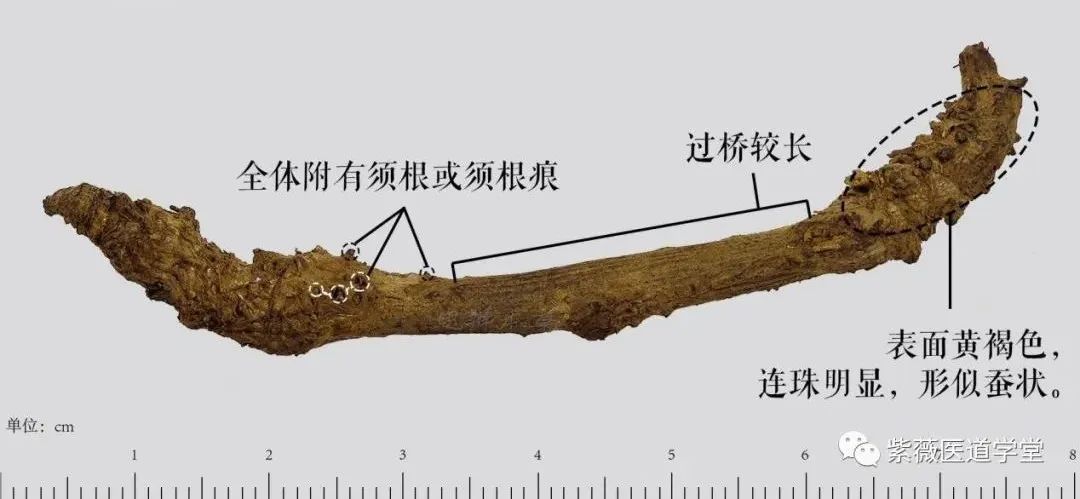
16
Chronic diarrhea is often associated with spleen and kidney deficiency and cold; habitual use of spicy and hot products can lead to concerns about drying out and harming yin; however, adding Huang Lian can balance cold and heat, and yin and yang, achieving a complementary effect.
17
Miao Zhongchun treated dysentery with a larger dosage of Huang Lian, as in his formula for dysentery, the “Zhi Xia Jin Wan” is made solely from Huang Lian, with each dose being 4 qian (approximately 15 grams).
Huang Lian has a bitter cold nature, and such a heavy dosage can inevitably harm the stomach and deplete fluids. However, Miao emphasized pairing and processing to prevent this side effect:
① According to the different symptoms of dysentery, use corresponding herbs for decoction. For weak stomachs, use Ren Shen, Lian Zi, and Ju Hong; for abdominal pain, use Bai Shao and Gan Cao.
② Great emphasis on processing. For the “Zhi Xia Jin Wan”, first soak in ginger juice, then stir-fry nine times, and then finely grind, using ginger juice to form pills, employing this processing method to reduce the side effects of Huang Lian’s bitter cold on the stomach.
18
Huang Lian is effective in entering the heart to clear heat; when the heat in the heart is cleared, the heat in the upper jiao is also cleared, making this herb effective for treating meningitis, cerebral congestion, and dizziness.
19
Huang Lian combined with Huang Qin and Gan Cao is effective for treating Hu Huo disease (similar to Behçet’s disease).
20
Using 15 grams of Huang Lian and 20 grams of Ma Huang (Ephedra) (first decocted to remove foam, then add Huang Lian to decoct together) is effective for treating iritis and ciliary body inflammation.
21
For retinal arteriosclerosis, taking Huang Lian internally can prevent blood vessel rupture; if rupture occurs, combining Huang Lian with Jue Ming Zi (Cassia Seed) in decoction can also dissipate blood stasis.
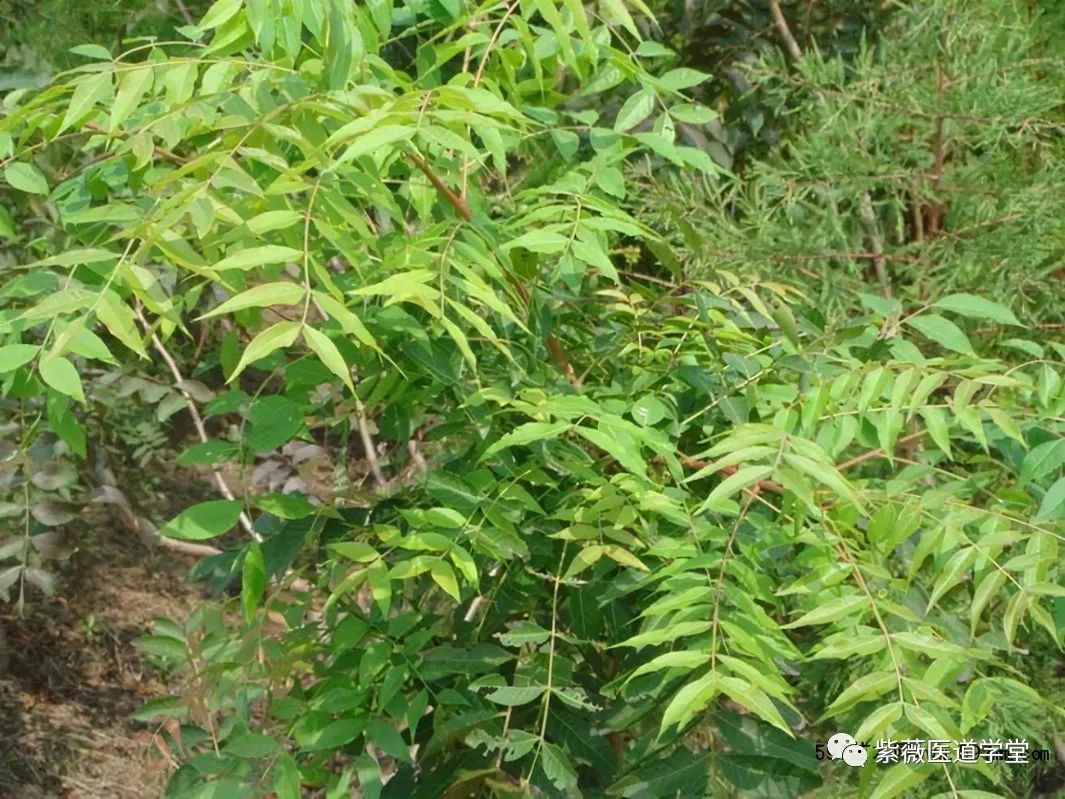
Note:Please follow medical advice for specific treatments and medications!This article is excerpted from “Lin Zheng Ben Cao” by Tao Yu Feng, published by People’s Health Publishing House, March 2005. This public account is used for academic exchange only; if there is any infringement, please contact for deletion, and please indicate the source when reprinting.

